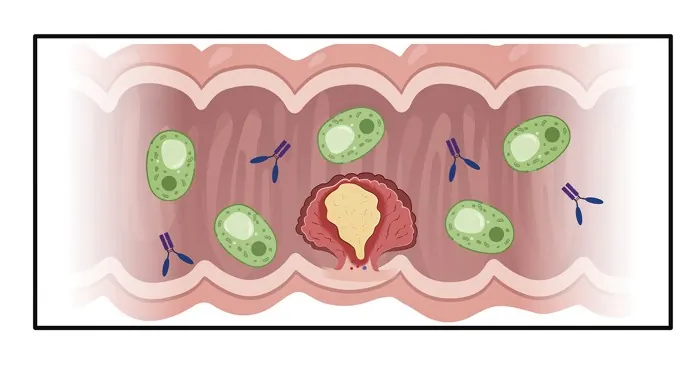
Revolutionary Engineered Yeast Emerges as Potential Colorectal Cancer Immunotherapy
2024-11-21
Author: Ming
Introduction
In a groundbreaking breakthrough, researchers have developed a specially engineered yeast strain, Saccharomyces cerevisiae var. boulardii (commonly known as S. boulardii), that could transform the treatment landscape for colorectal cancer. This innovative approach aims to utilize the yeast's unique properties to deliver potent immune checkpoint inhibitors directly to gastrointestinal tumors in mice.
Research Background
The research team, led by expert microbiologist Gautam Dantas at Washington University in St. Louis, previously advanced similar technology using Escherichia coli bacteria. These bacteria were engineered to produce immune checkpoint inhibitors, showing promising results in mouse models. The latest study, published in *Cell Chemical Biology*, explores how S. boulardii can be harnessed to accomplish an even more targeted treatment after being ingested.
Mechanism of Action
In this remarkable study, Dantas and colleagues inserted plasmids into the yeast to encode miniature antibody variants that specifically block PD-1—a protein on T cells that plays a critical role in immune regulation. Tumor cells often evade the immune system by leveraging this checkpoint protein; however, by blocking PD-1, T cells can effectively eliminate cancerous cells.
Study Findings
The researchers observed that mice with colorectal cancer who were fed the engineered S. boulardii exhibited significantly fewer tumors compared to those receiving no treatment and compared to those treated with conventional immunotherapy. This success lies not only in the immune checkpoint inhibitors' ability to revive the immune response but also potentially in the intrinsic properties of S. boulardii, which may possess therapeutic qualities that further combat cancer cell activity.
Expert Opinions
Prominent microbiologist Morten Sommer, based at the Novo Nordisk Foundation for Biosustainability in Denmark, commended the study as a "proof of concept" for the use of engineered yeast in delivering these powerful inhibitors. The prospect of utilizing a well-tolerated probiotic yeast as a vehicle for cancer treatment opens a new frontier in cancer immunotherapy, marrying biotechnology with clinical effectiveness.
Conclusion
With colorectal cancer being one of the leading causes of cancer mortality worldwide, these findings could pave the way for innovative, less invasive treatment options. The research highlights a promising future where engineered microorganisms could be revolutionizing how we combat complex diseases like cancer. Stay tuned, as this breakthrough may just be the beginning of a new era in cancer treatment!





 Brasil (PT)
Brasil (PT)
 Canada (EN)
Canada (EN)
 Chile (ES)
Chile (ES)
 España (ES)
España (ES)
 France (FR)
France (FR)
 Hong Kong (EN)
Hong Kong (EN)
 Italia (IT)
Italia (IT)
 日本 (JA)
日本 (JA)
 Magyarország (HU)
Magyarország (HU)
 Norge (NO)
Norge (NO)
 Polska (PL)
Polska (PL)
 Schweiz (DE)
Schweiz (DE)
 Singapore (EN)
Singapore (EN)
 Sverige (SV)
Sverige (SV)
 Suomi (FI)
Suomi (FI)
 Türkiye (TR)
Türkiye (TR)